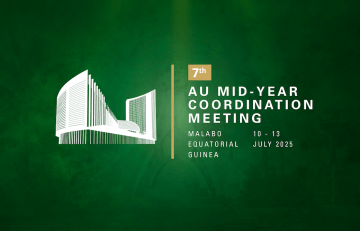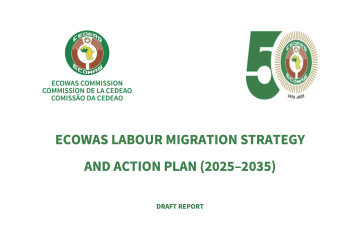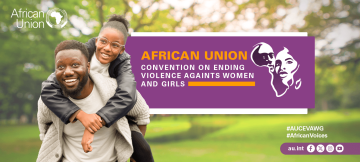Key Resources
-
December 24, 2025
39th AU summit Media Accreditation Platform
https://accreditation.au.int/en/form/au-summit-accreditation
- August 04, 2025
-
July 25, 2025
The Africa Governance Report 2025 (AGR25) is the fourth report produced by the African Peer Review Mechanism (APRM) on behalf of the African Governance Architecture (AGA).
-
July 10, 2025
7MYCM Information Guide
- July 10, 2025
-
June 19, 2025
7th MYCM Online Media Accreditation Form
-
June 19, 2025
7th MYCM Media Visa on Arrival Request Form
- June 19, 2025
-
May 15, 2025
ECOWAS LABOUR MIGRATION STRATEGY AND ACTION PLAN (2025–2035)
- February 14, 2025
-
February 12, 2025
38th AU Summit Program of Events
-
October 02, 2024
The African Union Convention on Ending Violence Against Women and Girls (AUCEVAWG) is a comprehensive legal instrument for the prevention and elimination of all forms of violence against women and girls on the Continent. The Convention was adopted during the 38th Ordinary Session of the Assembly of Heads of State and Government in February 2025.
- Page 1
- ››


















